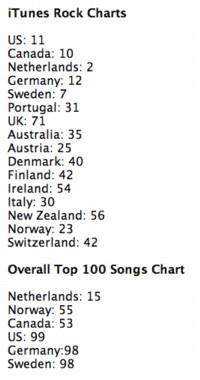CityTV in Toronto had a great story. Burglar gets caught in the act by home owner, attempts to get away by leaping off balcony, busts his leg, and someone snaps pictures of the poor sap while he lays on the ground as cops are called and arrive to the scene. What avid Flickr user Joel Charlebois did with the photos afterward is the real story.
When CityTV heard him mention that he was going to post the photos to Flickr, they not only checked them out but used them in a news story. Problem is, there was no mention of the person who took the images. This is also known as a violation of copyright. As any good Flickr user and avid photographer will tell you (like Duane did on his blog post on this same topic), you protect the things you love. Yes, you can protect your photos on Flickr with a copyright, and the Canadian Broadcast Standards Council agreed with the complaint brought against CityTV.
Charlebois, displeased, took his case to the Canadian Broadcast Standards Council (CBSC), and today, nine months after the complaint was filed, a majority of the National Specialty Services Panel found that City’s broadcast did indeed violate the Association of Electronic Journalists of Canada’s RTNDA Code of (Journalistic) Ethics, which states that “Plagiarism is unacceptable. Broadcast journalists will strive to honour the intellectual property of others, including video and audio materials.” (The full decision is here.) The panel took particular issue with the lack of credit to Charlebois, stating that “the broadcaster knew full well the identity of the photographer whose still shots were used in the news report,” an omission that they deemed unfair, for news reporting or otherwise. (They note that the American RTNDA states that “professional electronic journalists should…clearly disclose the origin of information and label all material provided by outsiders.”)
As a result, City must issue a rare on-air statement at least twice, during prime time, over the next ten days. That statement will follow a script set by the CBSC, stating that, in part, the news organization breached the aforementioned Code of Ethics and “included three still photographs of the injured burglar without providing any credit to the photographer, whose identity was known to the broadcaster. By failing to provide that accreditation, the broadcaster has failed to honour the intellectual property rights of the photographer.” [torontoist]
What is important to me on this story is that intellectual property was protected as it should be, no matter how it is being utilized. On top of that, it gives comfort to know that mainstream media will be held accountable for violations of copyrighted material. It’s not a full safety net, but that means that even the little guy stands a chance against big media companies when it comes to protecting your content.
Even Charlebois admits in the story that all he was really concerned about was the proper accreditation, not the punishment handed down to CityTV. I think it’s interesting to note that there is very little discussion of fines or compensation.


